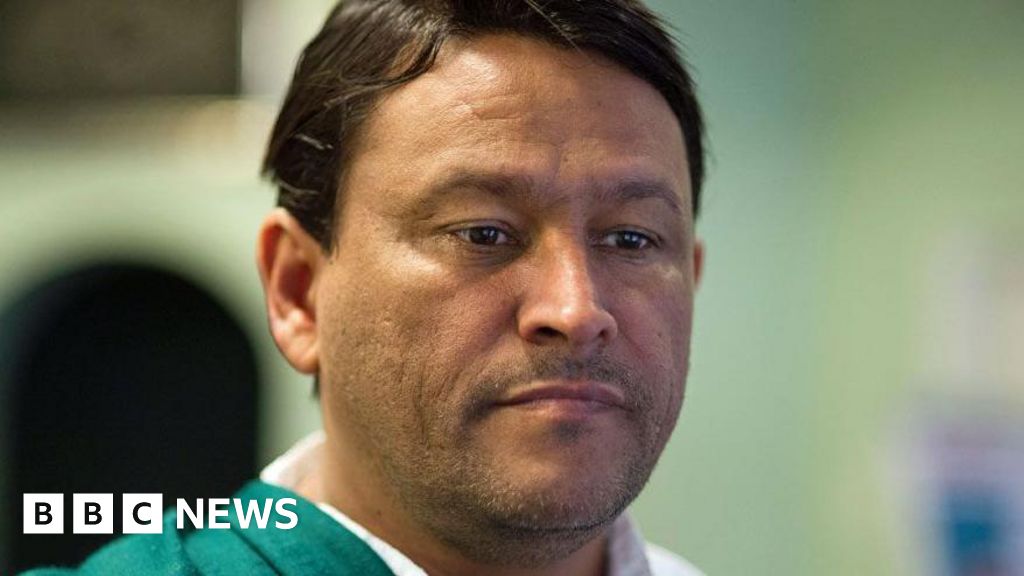
Muhsin Hendricks, recognized as the world’s first openly gay imam, has tragically been shot dead in South Africa.
The 57-year-old religious leader operated a mosque in Cape Town that served as a sanctuary for LGBTQ+ and other marginalized Muslims. He was fatally attacked on Saturday morning while traveling near Gqeberha.
“Two unidentified individuals with concealed faces emerged from a vehicle and began firing numerous shots,” the police reported.
The news of Hendricks’ assassination has reverberated through the LGBTQ+ community and beyond, leading to an outpouring of condolences from around the world.
Julia Ehrt, the executive director of the International Lesbian, Gay, Bisexual, Trans and Intersex Association (ILGA), urged authorities to conduct a comprehensive investigation into “what we fear might be a hate crime.”
“He supported and guided countless individuals in South Africa and across the globe as they navigated the reconciliation of their faith, embodying the healing power of solidarity among communities,” she stated.
Hendricks was reportedly killed shortly after officiating at a lesbian wedding, although this detail has not been officially verified.
Details of the assault were revealed through security footage shared on social media. The video shows a vehicle blocking Hendricks’ car as it was leaving the curb. According to the police, he was seated in the back.
Surveillance footage captured an attacker exiting a car, rushing to Hendricks’ vehicle, and firing multiple shots through the back passenger window.
The Al-Ghurbaah Foundation, which oversees the Masjidul Ghurbaah mosque in Wynberg, confirmed that Hendricks died in a deliberate attack on Saturday morning.
However, Abdulmugheeth Petersen, chair of the foundation’s board, requested empathy among their followers via a WhatsApp group, highlighting the need to safeguard Hendricks’ family.
Hendricks challenged conventional interpretations of Islam, advocating for a compassionate and inclusive approach to faith.
South Africa’s post-apartheid Constitution was groundbreaking, becoming the first globally to safeguard individuals against discrimination based on sexual orientation, and in 2006, it became the first African nation to legalize same-sex marriage.
Despite having a vibrant LGBTQ+ community, individuals still encounter discrimination and violence. The nation also grapples with one of the highest murder rates worldwide.
Hendricks publicly came out as gay in 1996, shocking many in the broader Muslim community in Cape Town and beyond.
That same year, he founded The Inner Circle, an organization that offered support and a safe environment for queer Muslims seeking to navigate their faith and sexuality, and later established the inclusive Masjidul Ghurbaah mosque.
He was featured in a 2022 documentary titled *The Radical*, where he expressed, “The need to be authentic was greater than the fear of dying.”
Hendricks frequently emphasized the significance of interfaith dialogue and addressing the mental health challenges faced by LGBTQ+ individuals within religious communities.
At the ILGA World Conference in Cape Town last year, he remarked, “It is essential that we cease viewing religion as the adversary.”
Reverend Jide Macaulay, an openly gay Anglican priest, described Hendricks’ passing as “deeply heartbreaking.”
The British-Nigerian LGBTQ+ rights activist, who leads House of Rainbow—a support organization for gay individuals in Nigeria where same-sex relationships are illegal—paid tribute to Hendricks’ bravery.
“Your leadership, courage, and steadfast commitment to inclusive faith communities have left a lasting impact,” he stated.
Sadiq Lawal, a gay Muslim man in Nigeria, shared with the BBC that Hendricks had significantly influenced many by proclaiming, “I’m a queer imam,” effectively making “the impossible possible.”
“He has been a mentor to numerous queer Muslims in Africa, particularly in Nigeria, due to religious extremism,” he added. “I’m still in shock and devastated.”









